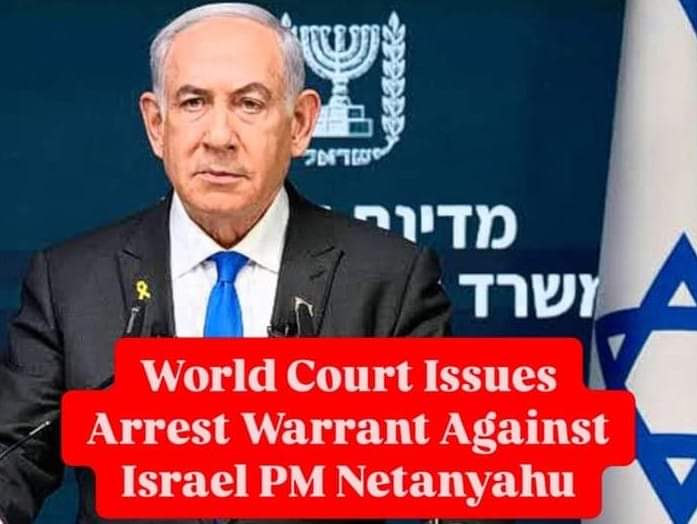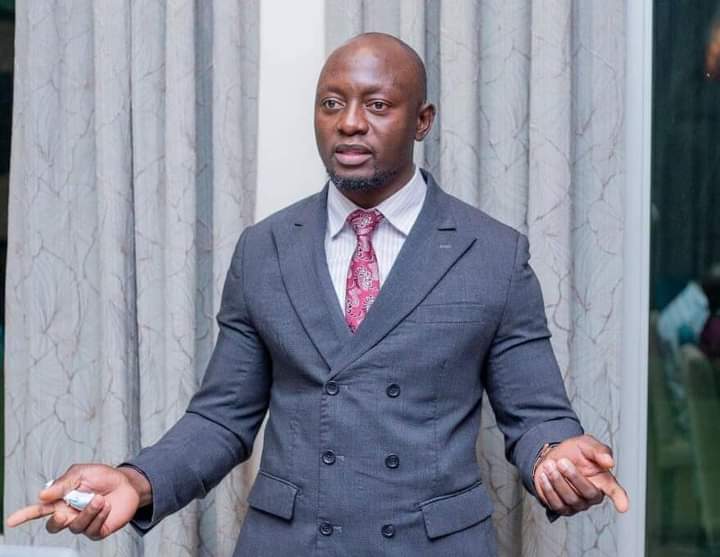
Downing Street’s pledge to uphold its legal obligations under international law signals a dramatic twist for Israeli Prime Minister Benjamin Netanyahu, as his potential UK visit is overshadowed by an ICC arrest warrant for alleged war crimes.
Lusaka, Nov. 23 – Israeli Prime Minister Benjamin Netanyahu’s potential visit to the United Kingdom has become a contentious issue following an international arrest warrant issued by the International Criminal Court (ICC). While Downing Street has avoided direct comment on the matter, a spokesperson stated the UK government would adhere to its “legal obligations,” raising questions about Netanyahu’s immunity under international law.
Also Read: Hichilema skips a fruitful Africa – Russia Summit for a fruitless visit to Israel.
The ICC issued the arrest warrant on Thursday, targeting Netanyahu and former Israeli Defense Minister Yoav Gallant for alleged war crimes in Gaza. As a member of the ICC, the United Kingdom is bound by treaty obligations to act on such warrants. When pressed about the possibility of detaining Netanyahu should he travel to Britain, the prime minister’s spokesperson refrained from engaging with “hypotheticals” but reiterated that the government is committed to fulfilling its duties under the law.
The legal framework guiding this process is the International Criminal Court Act 2001, which mandates that warrants issued by the ICC be transmitted to an appropriate judicial officer. If deemed valid, the officer must endorse the warrant for execution in the UK. The prime minister’s spokesperson affirmed that the government would follow this process while upholding its international and domestic legal commitments.
Despite this, key procedural questions remain unanswered. It is unclear which secretary of state would oversee the matter, and the government has declined to disclose whether it has sought legal advice from Attorney General Lord Hermer, the UK’s chief legal authority. Typically, arrest warrants undergo preliminary checks by a specialized team within the Home Office before further action is taken, ensuring the UK’s adherence to international law.
The ICC’s decision has drawn mixed reactions. Shadow Foreign Secretary Dame Priti Patel criticized the court for equating Israel’s military actions in Gaza with Hamas’s attacks, labeling the move as “provocative” and urging the UK government to challenge the warrants. Conversely, several European officials expressed support for the ICC’s independence and pledged to implement its decisions.
US President Joe Biden has dismissed the warrant against Netanyahu as “outrageous,” emphasizing that there is “no equivalence” between Israel’s actions and Hamas’s. However, French Foreign Minister Jean-Noel Barrot cautioned against premature conclusions, describing the ICC warrant as an accusation rather than a judgment. He also condemned the lack of humanitarian aid reaching Gaza’s civilians amid the ongoing conflict.
Amnesty International, the human rights organisation said on X that the “wheels of international justice have finally caught up with those alleged to be responsible for war crimes & crimes against humanity in Palestine and Israel”. “There can be no ‘safe haven’ for those alleged to have committed war crimes and crimes against humanity,” it added, while the Human Rights Watch said “The ICC arrest warrants against senior Israeli leaders and a Hamas official break through the perception that certain individuals are beyond the reach of the law.”
In a statement, the South African government welcomed the ICC decision and said it marked a significant step towards justice for crimes against humanity and war crimes in Palestine.
“South Africa reaffirms its commitment to international law and urges all state parties to act in accordance with their obligations in the Rome Statute,” it said, “We call on the global community to uphold the rule of law and ensure accountability for human rights violations.”
The European Union Foreign policy chief Josep Borrell said the ICC warrants were not political and should be respected and implemented.
“This decision is a binding decision and all states, all state parties of the court, which include all members of the European Union, are binding to implement this court decision,” he said.
In Iran, the head of the Islamic Revolutionary Guard Corps (IRGC) described the warrants against Netanyahu and Gallant as the “end and political death” of Israel, calling it a “regime that today lives in absolute political isolation in the world and its officials can no longer travel to other countries”.
Also Read: Ortega Compares Netanyahu to Hitler, Labels Zelensky a ‘Son of the Nazi Dictator’! Nicaraguan President, Daniel Ortega, has slammed Israeli Prime Minister Benjamin Netanyahu and Ukrainian leader Vladimir Zelensky, comparing both politicians to Nazi Germany’s Adolf Hitler.
Notably, the ICC also issued a warrant for Hamas military commander Mohammed Deif, allegedly responsible for orchestrating the October 7, 2023, attacks on Israel. While Israel claims Deif was killed in July, the warrant underscores the ICC’s broader investigation into atrocities on both sides of the conflict.
The controversy has reignited debates over the ICC’s jurisdiction and impartiality. Israel, along with its ally the United States, rejects the court’s authority, branding its actions as politically motivated. Netanyahu has denounced the warrants as “antisemitic,” while Hamas welcomed the charges against Israeli leaders but avoided commenting on Deif’s inclusion. The ultimate impact of these warrants depends on whether ICC member states choose to enforce them, a decision likely to test the court’s influence on the global stage.
About Our Advocacy: Woodpecker’s Digest provides in-depth analyses and commentary on issues of national importance, alongside articles on personal development and health. We believe journalism can be a force for socio-economic change.
©2024 Woodpecker’s Digest.
Journalism for social changehttps://is.gd/QeSopV







